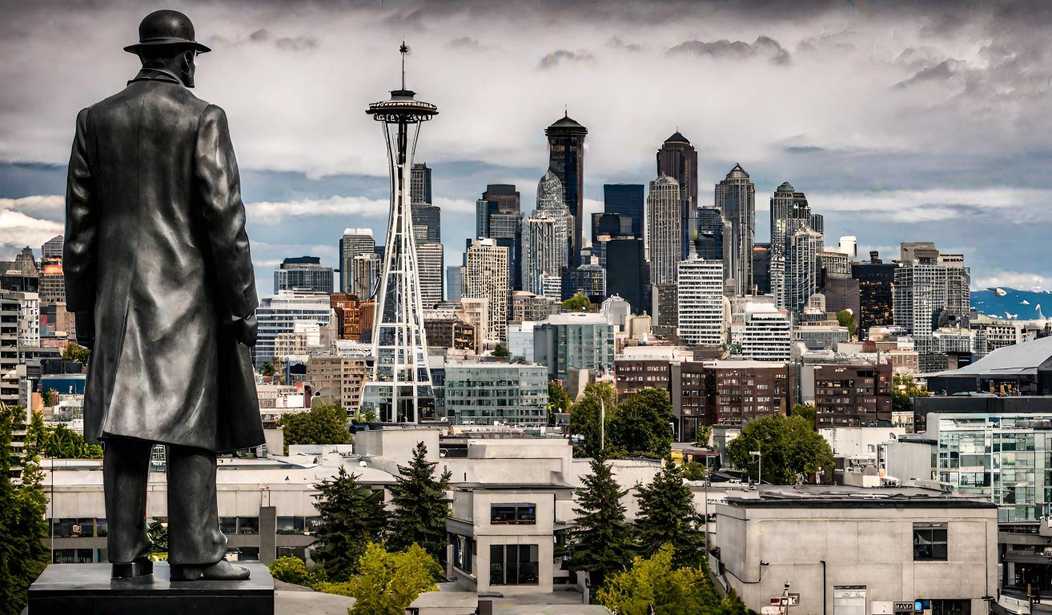Seattle closed the door on the subminimum wage for people who work for small businesses, earn tips, or enjoy medical benefits under a punishing new minimum wage law. This forced one popular spot to close up shop the same day the new ordinance went into effect.
"Previously, if an employee earned at least $2.72 per hour in medical benefits or tips," Fox 13 Seattle reported, "a business could pay its workers $17.25 per hour." As of New Year's Day, all the exceptions and exemptions are gone. Seattle's new no-excuses minimum wage is now a payroll-busting $20.76 an hour.
Bebop Waffle Shop threw a big party on Dec. 31 and permanently locked its doors on Jan. 1. My shocked face was last seen sipping a brandy by the fire and reading a dog-eared copy of Milton Friedman's "Why Government Is the Problem." That's my amusingly wordy way of saying that I totally believe it happened.
The local diner's finances were already suffering due to inflation and lower downtown foot traffic. It was against this economic backdrop that the city chose to impose a 20% pay hike on restaurant workers because politicians put moral preening and virtue signaling ahead of any other considerations.
Then there's the part I didn't believe at first but, on reflection, seemed almost inevitable. "I hate to close a safe space for queer people at this time," Bebop Waffle Shop owner Corina Luckenbach explained on Instagram, "but the money just isn’t there after the minimum wage increase (which I fully support)."
Emphasis added because some folks are just too far gone ever to take the red pill. Still, you want to grab Corina by the hoodie and explain things to her in words she'll understand, tell her, "Minimum wage laws are bad for queer people and other living things, mmkay?"
Anthony Anton, head of the Washington Hospitality Association, estimated that Seattle will see 5%-8% of its restaurants go out of business — in 2025 alone.
Seattle Times reporter Jessica Fu, blithely unaware for a journalist, led with this gem: "Seattle’s lowest-paid workers will be ringing in the new year with a raise." Except for workers at places like Bebop who lost their jobs or the teens looking for their first job who Seattle's do-gooders just priced out of the labor market.
My second favorite part of the Seattle Times writeup was when Fu wrote, "Others expect the effect on businesses to be more modest, pointing out that the exact amount of the wage increase has been scheduled since the fall." Jennie Romich, a professor of social welfare policy at the University of Washington, explained, "People knew this was coming."
People knew the giant comet was coming in "Deep Impact," too, and made all kinds of preparations — but it still wiped out the entire Eastern Seaboard. Just because an event is foreseeable doesn't mean its ill effects can be completely mitigated.
Seattle workers are also being treated to a generous new sick leave law, requiring employers to "provide at least one hour of paid sick leave for every 40 hours worked," according to the Times. "The leave is available after 90 days of employment and can be carried over, up to 40 hours annually."
That's an extra week of paid vacation that employers must somehow come up with on top of the $20.76 minimum wage.
This is my favorite part of the Seattle Times writeup, even though it isn't technically part of the story: "Jessica Fu is a Seattle Times business reporter covering the affordability crisis."
Huh. How'd they get into one of those?
Recommended: What Will You Miss the Least About Joe Biden?










Join the conversation as a VIP Member